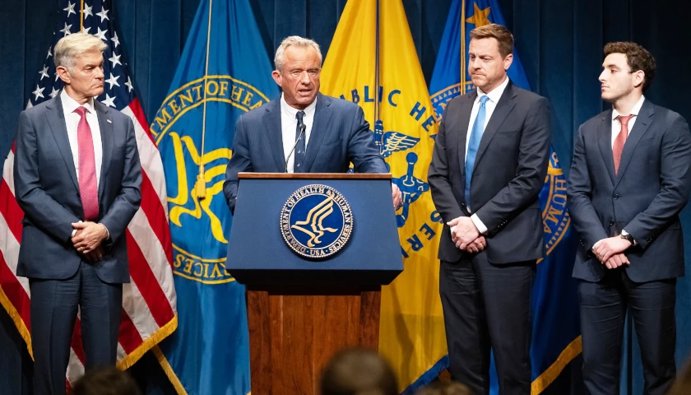
Insurers Pledge to Reform Prior Authorization
75% of U.S. health insurers pledge to streamline prior-authorization, aiming to cut delays and improve patient care.
Trump Administration and Health Industry Target Bureaucratic Delays
In a sweeping effort to improve patient care, the Trump administration has secured a landmark pledge from three-quarters of the nation’s health insurance providers to overhaul the controversial prior-authorization process. The voluntary industry-led commitment, announced Monday by Centers for Medicare and Medicaid Services Director Dr. Mehmet Oz and Health and Human Services Secretary Robert F. Kennedy Jr., promises to cut bureaucratic delays that have long frustrated both doctors and patients.
Speaking at a press conference, Dr. Oz underscored the importance of the pledge. “It’s not a mandate. It’s not a bill, a rule. This is not legislated. This is an opportunity for industry to show itself,” Oz said, noting that the insurers who signed on already cover 75% of the U.S. population. “The response has been overwhelming.”
Prior-authorization, which requires healthcare providers to obtain insurer approval before delivering certain treatments, was originally designed to ensure proper care. However, it has become a notorious source of delays and administrative headaches. Physicians, Oz noted, now spend on average 12 hours per week dealing with prior-authorization paperwork, often handling 40 requests per week. “It frustrates doctors. It sometimes results in care that is significantly delayed. It erodes public trust in the healthcare system. It’s something we can’t tolerate,” he insisted.
Major Insurers Commit to Systemic Change
Major providers—including United Healthcare, Cigna, Humana, Blue Cross & Blue Shield, and Aetna—are among those pledging to implement standardized electronic prior-authorization processes by January 1, 2027. The new framework aims to support faster turnaround times through common submission requirements, with the goal of providing 80% of electronic approvals in real time by 2027.
Additionally, participating insurance plans have committed to reducing their use of medical prior-authorization by January 1, 2026. A key patient-centered reform will require that when individuals change insurers during ongoing treatment, the new provider will honor any existing prior-authorization approvals for at least 90 days, easing the transition and reducing disruptions in care.
Transparency is another cornerstone of the initiative. Insurers will offer clear, accessible explanations for all prior-authorization decisions and provide straightforward guidance for patients to appeal denied requests. The industry will also move toward public reporting on compliance and turnaround metrics.
Dr. Oz, invoking the spirit of collaboration, likened the industry’s commitment to the biblical notion that “the meek shall inherit the earth,” explaining, “Meek means you have a sharp sword…but you decide, electively, to sheathe that sword and put it away for a while, so you can do good.” He praised insurers and hospital systems for working together to solve a problem that “plagues us all.”
While the pledge is not a government mandate, its voluntary nature has garnered widespread attention and optimism. Industry leaders acknowledge that making care more accessible and efficient may challenge profit margins but assert that the reforms are necessary for restoring public trust and improving health outcomes.
As the healthcare system begins this transition, the next two years will be critical for implementing these reforms. Patients, providers, and policymakers alike will be watching to see if these commitments deliver on the promise of better, faster, and fairer healthcare for millions of Americans.






